Silver Doesn’t Care, but You Should
2023.05.01 05:41
As other commodities dip, how long will buck the trend?
While calling the top is a process that plays out over time, silver’s momentum has fizzled, and the next major move should be to the downside. To explain, we wrote on Apr. 21:
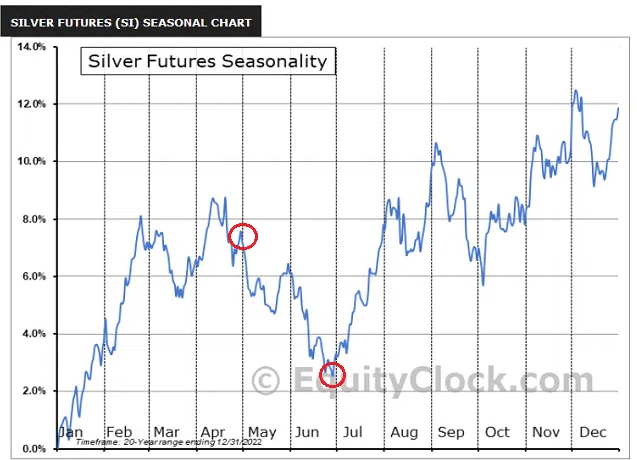
Silver Futures Seasonal Chart
The blue line above shows how silver often peaks in mid-to-late April, with substantial weakness following until the end of June. In a nutshell: May and June are when the white metal has suffered its worst historical performance.
Also, the first red circle shows how after a small rally near the end of April, it’s largely downhill until July. Consequently, when you combine the seasonality implications with silver’s ominous technical and fundamental outlooks, the bears should feast over the medium term.
On top of that, silver is an attractive pairs trading short.
Please see below:
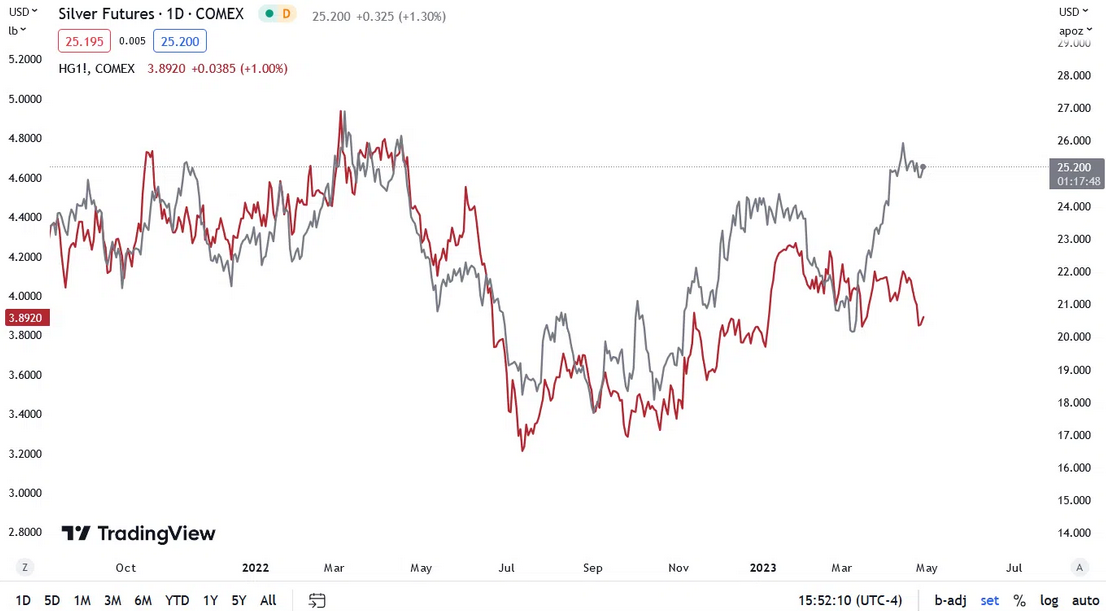 Silver Futures Daily Chart
Silver Futures Daily Chart
To explain, the red line above tracks the daily price, while the gray line above tracks the daily price. If you analyze the relationship, you can see that the pair have largely moved in lockstep since late 2021. And with copper trading near its March lows, silver’s outperformance is likely living on borrowed time.
To further emphasize the point, please see the pair’s relationship on the monthly chart:
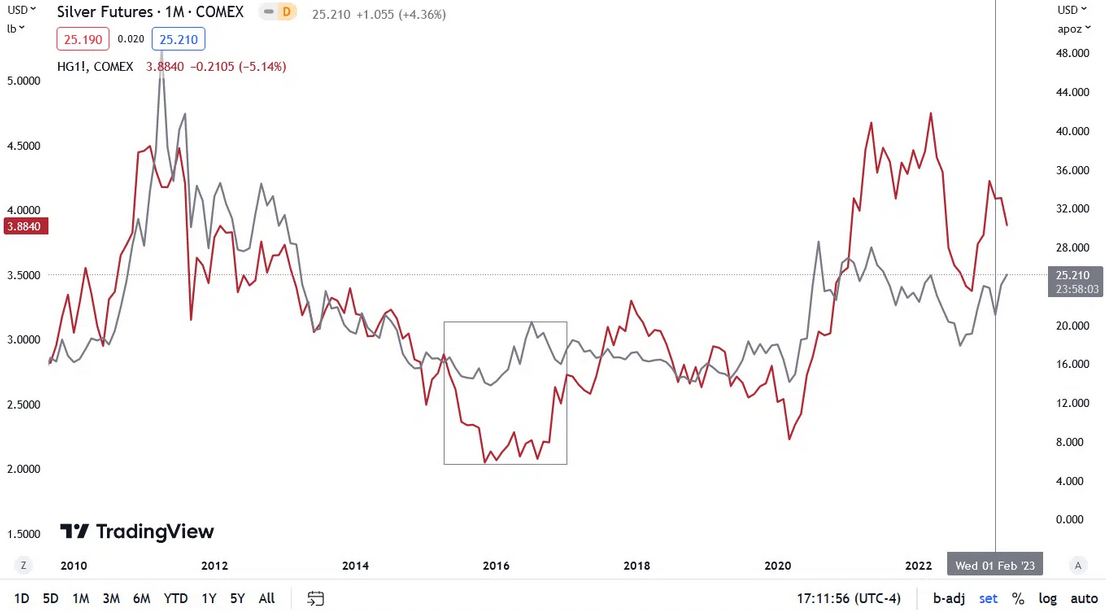 Silver Futures Monthly Chart
Silver Futures Monthly Chart
To explain, the box in the middle shows how when silver decoupled from copper in 2015-2016, the white metal rallied from ~$16.70 to ~$20.35. Yet, five months later, it declined to ~$16 and gave it all back. As such, if you analyze the vertical gray line on the right side of the chart, you can see that the white metal’s strength contrasts copper’s weakness. And with a meaningful rally already in place, silver’s current price looks more like the 2016 peak than the beginning of a new bull market.
So, with silver’s tail risk heavily skewed to the downside, we believe that betting on higher prices offers much more risk than reward.
Fade the Rate-Cut Narrative
In addition, while the crowd expects rate cuts in the months ahead, the data does not support their dovish disposition.
Please see below:
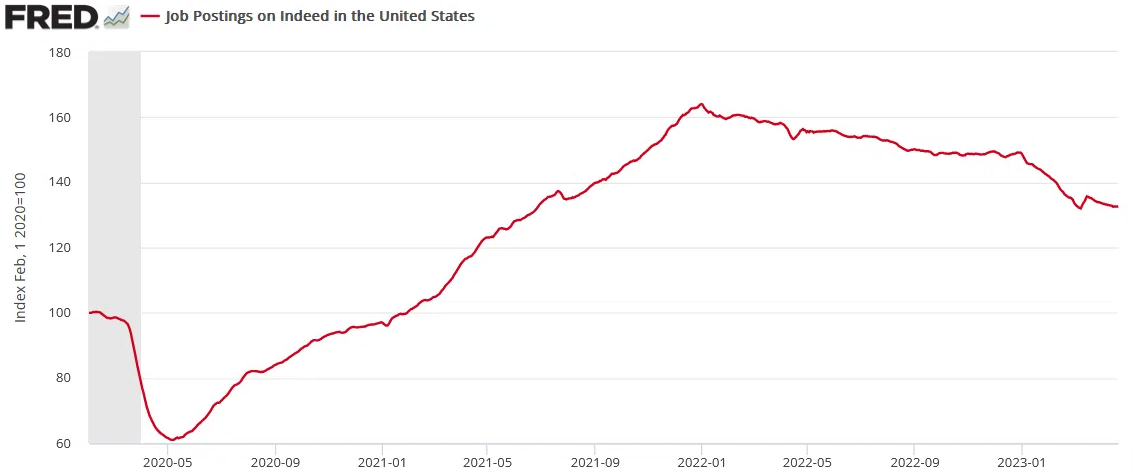 Job Postings on Indeed in US
Job Postings on Indeed in US
To explain, job postings on Indeed rose slightly last week (updated on Apr. 26), and the current figure remains above the Mar. 9 low. And while job openings had declined sharply in early 2023, the downward momentum has stopped, and the metric is ~33% above its pre-pandemic trend. Consequently, the Fed still has an inflation problem, and wage growth is unlikely to subside until job openings decline materially.
Speaking of which, the Atlanta Fed updated its Wage Growth Tracker on Apr. 13. And with the metric increasing from 6.1% in February to 6.4% in March, it’s only 30 basis points away from its all-time high (dating back to 1983) set in June, July and August 2022.
Please see below:
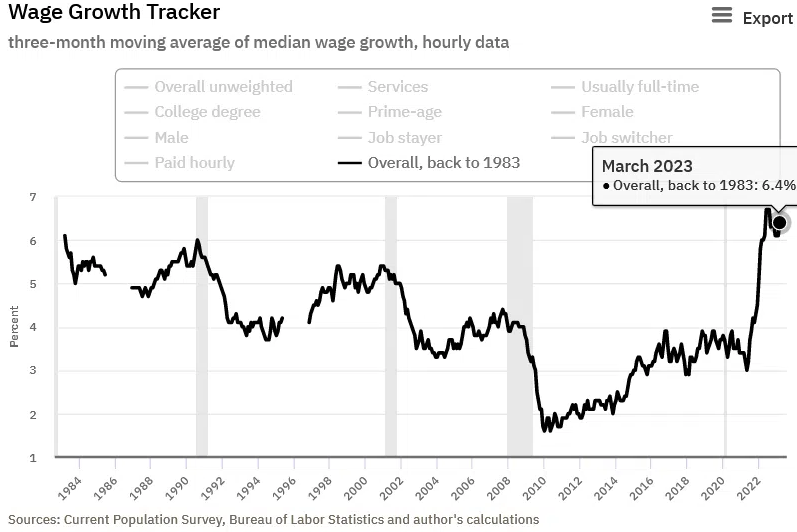
Furthermore, with earnings season supporting the inflation thesis, companies continue to raise prices at the expense of volume. And with the gambit going on for more than two years, the trend should continue until interest rates are high enough to suppress demand.
Please see below:

To explain, PepsiCo (NASDAQ:) released its first-quarter earnings on Apr. 25. The beverage giant reported flat, and volume declines, in its North American segments, while prices rose by 15% and 16%, respectively.
Showcasing similar results, Procter & Gamble (NYSE:) (P&G) reported its third-quarter earnings on Apr. 21. And with volume down across three of its five segments, price increases of 6% to 13% drove its revenue growth.
Please see below:

Finally, Kimberly-Clark (NYSE:) reported its first-quarter earnings on Apr. 25. And surprise, surprise, volumes declined across the board, while price increases of 4% to 16% in North America uplifted the top line.
Please see below:
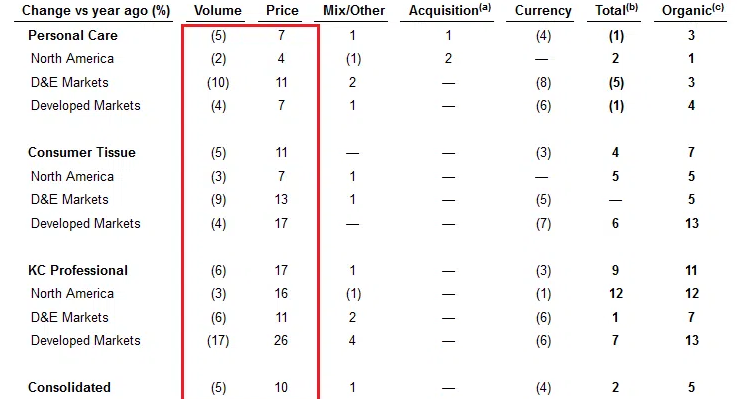
Overall, silver confronts a treacherous medium-term backdrop, as the fundamentals, technicals and seasonality are bearish. What’s more, the crowd is pricing in rate cuts at a time when wage inflation is rising and corporate revenues are still buoyed by price increases. Consequently, the white metal should endure a substantial re-pricing in the months ahead.
Can the CPI fall to 2% if major corporations raise their prices by much more?







